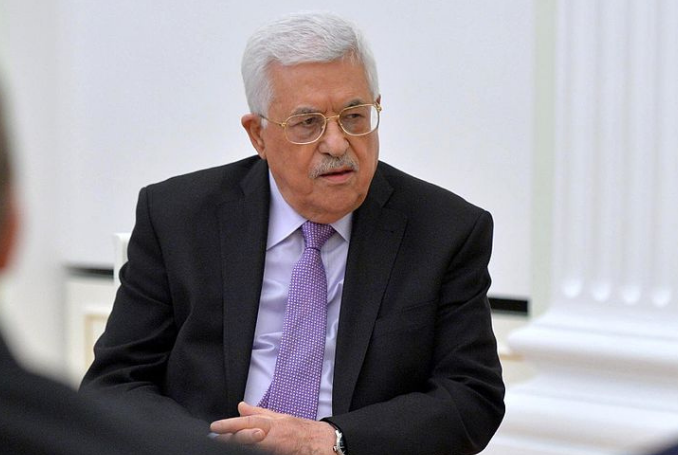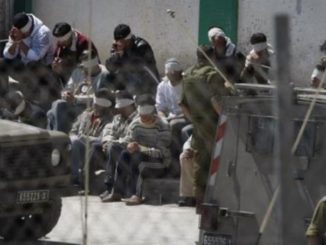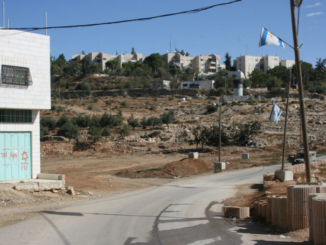
By Ramona Wadi
Known for belatedly spouting known truths, Palestinian Authority leader Mahmoud Abbas was true to form in his address to the J Street conference recently, which revealed the extent of his collaboration with the international community over Palestine’s loss, and his complicity with Israeli settler-colonialism.
Mentioning “apartheid” as he did cannot gloss over the fact that Abbas is still championing a paradigm that has facilitated Israel’s colonial expansion and de-facto annexation of Palestinian land.
US President Joe Biden’s two-state policy is still unclear. The strategy has worked well for Israel, while advocates of the internationally-imposed paradigm can once again make themselves useful. But the two-state “solution” has already been declared dead in the water and pressuring the US administration to heed a matter of international consensus that still harms Palestinians should not be deemed “the only solution”, as Abbas is fond of claiming. In doing so, he is on the same page as UN Secretary-General Antonio Guterres who insists that “There is no Plan B.”
If Abbas thought that by mentioning the A word he would be doing a service to the Palestinians, he is wrong. Not only has the Israeli NGO B’Tselem beaten him to it declaring that the colonial state has already passed the apartheid threshold, but Palestinians have also been trying to raise awareness regarding Israel’s apartheid policies for years. The PA, meanwhile, was busying itself with the international community’s state-building illusions and tacitly approving Israel’s settlement expansion.
“Moving away from the two-state solution will eventually lead to a de facto one-state solution, an apartheid state, and this is something neither, we nor the entire world would accept,” Abbas said. “A one-state solution will only perpetuate the conflict.”
This is not necessarily true. Moving away from moribund two-state politics can give a chance to the Palestinian people, but only if they have a leadership worthy of the name and cause. The two-state solution, remember, came back into vogue with the announcement of the so-called Abraham Accords, which saw some Arab countries normalize relations with Israel in return, they claimed, to halt Israel’s annexation plans.
Annexation, as Israel has made clear, was simply “postponed”. Nevertheless, the UN had no qualms about endorsing the diplomatic game that facilitated the de-facto annexation of the occupied West Bank.
The Trump administration’s “deal of the century” shifted focus on what would happen if Abbas and the international community keep insisting upon the two-state compromise. Saying that the one-state solution would entrench apartheid is valid only because Palestinians have not been given the political freedom to construct their own independence and liberation process.
Israel has leverage over the one-state concept because it has secured its narrative within the international community. The Palestinian people, though, are burdened with a leadership whose main interest is to impose the international paradigm and call it a “solution”.
So what is the use of the PA participating in such seminars, if it only serves to strengthen the Israeli narrative and colonial expansion? Abbas had the opportunity to speak to J Street — a “pro-Israel, pro-peace” liberal US advocacy group — about the Palestinian concept of a single, democratic state, but he did not take it. It is possible, of course, that his invitation to address the group was conditional upon his promotion of the two-state compromise because there is purportedly no other option for the Palestinian people.
To speak where the funding lies is to maintain two-state politics, now defunct in terms of implementation yet favorable for Israel and its de-facto annexation — aka theft — of Palestinian land. The Palestinian leadership embarked yet again upon another spectacle that revealed its allegiance to external entities over and above the people of occupied Palestine.
– Ramona Wadi is a staff writer for Middle East Monitor, where this article was originally published. She contributed this article to the Palestine Chronicle.







